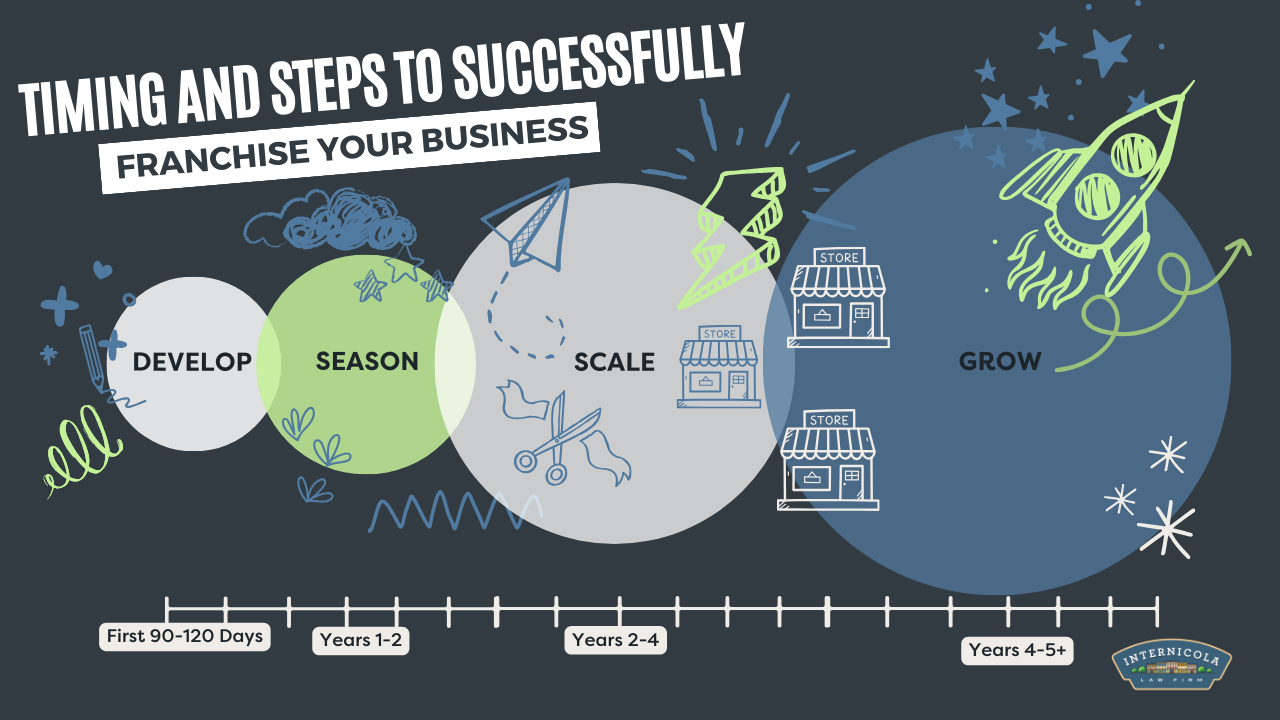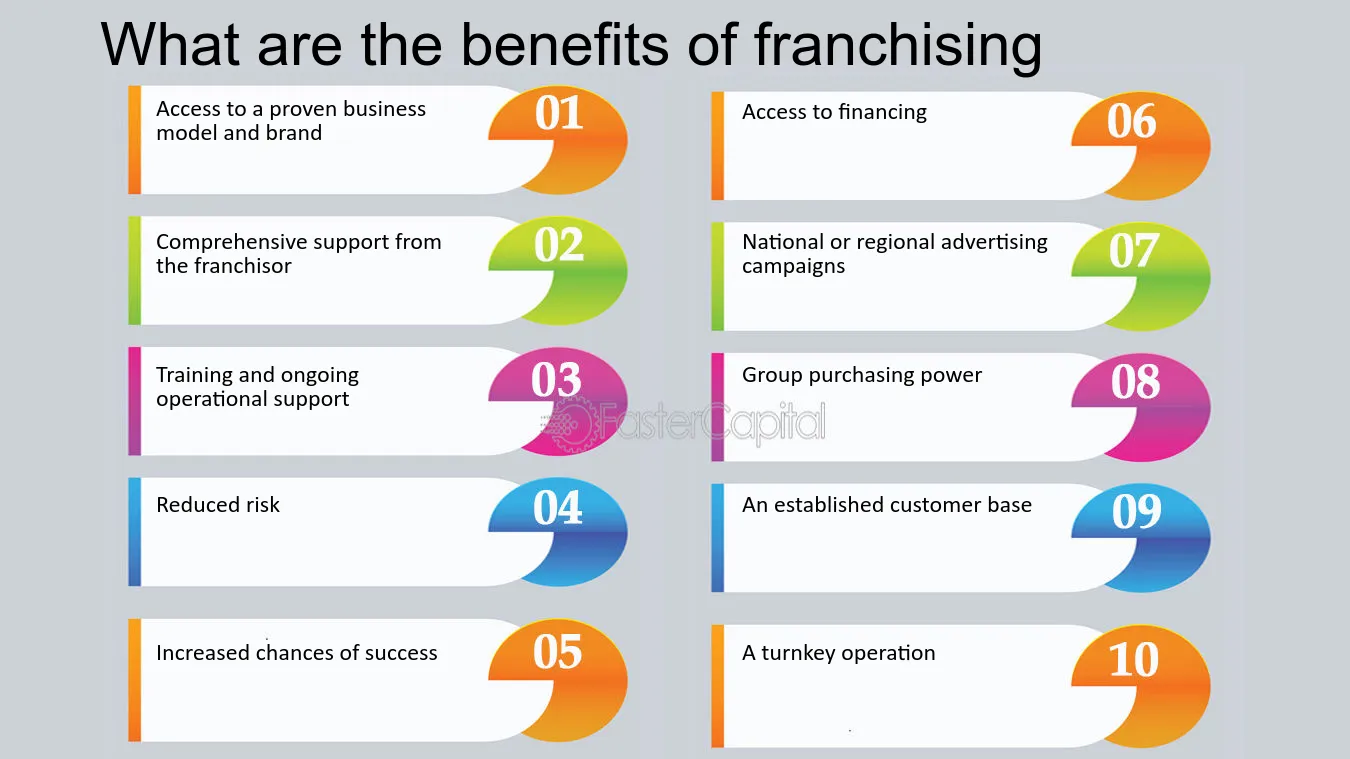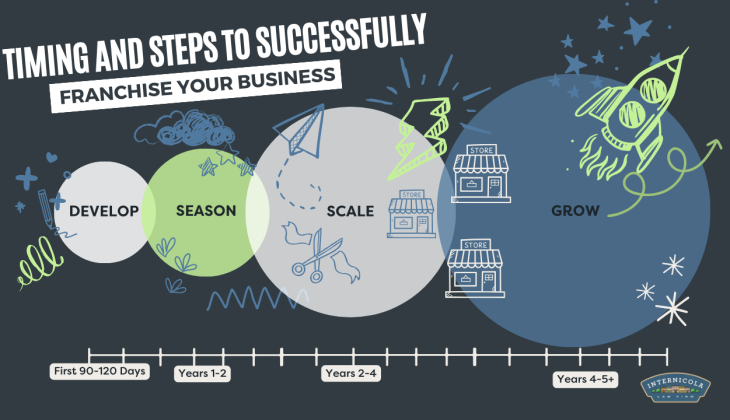Key Points
- Franchising allows small businesses to expand using someone else’s money while maintaining control over their brand.
- Initial costs to start a franchise can range from $10,000 to $100,000, depending on the industry and brand.
- Franchising offers built-in support, reducing the risks of starting a new business from scratch.
- It’s crucial to evaluate if your business model is easily replicable and appealing to potential franchisees.
- Legal requirements include preparing a Franchise Disclosure Document (FDD) and registering with state authorities.

Franchising can be a powerful tool for small business owners looking to expand. It’s a way to grow your business by allowing others to use your brand, products, and business model. But before jumping in, it’s essential to understand what franchising entails and how it can benefit your business.
Getting to Know the Basics of Franchising
Franchising is a way for a business to grow. In this setup, a business owner, who is referred to as the franchisor, gives permission to another party, known as the franchisee, to use their business model and brand. The franchisee gives the franchisor a fee and continuing royalties in exchange for the ability to operate under the brand’s name.
Franchising is like a partnership. The franchisor gives you everything you need to be successful, including training, marketing, and support. You, the franchisee, are responsible for running the business on a daily basis. This relationship allows businesses to expand without the hefty capital investment needed to open company-owned locations.
Franchising’s Role in Growing Small Businesses
Franchising provides a number of benefits for small business expansion. The most significant advantage is that it enables you to grow using other people’s funds. Rather than bearing the expense of new locations, franchisees use their own money to open and run new units.
Moreover, franchising can assist in enhancing brand recognition. As the number of locations increases, your brand becomes more familiar and reliable to customers. This increased visibility can result in higher sales and more inquiries about franchising, leading to a cycle of growth.
Assessing if Franchising is the Right Choice
Prior to jumping into franchising, assess whether it’s the right choice for your business. Not every business model is fit for franchising. A successful franchise requires a business model that’s easily duplicated and has a proven history of success.
Reflect on your individual objectives and readiness to aid franchisees. As a franchisor, you will be tasked with educating and helping franchisees. It’s important to have the necessary infrastructure and resources to offer continuous support. For more insights, explore these small business incentive programs to enhance your franchise operations.
Advantages of Franchising for Small Business Owners
Franchising provides a wealth of advantages for small business owners aiming to scale their enterprises. Whether it’s financial expansion or brand awareness, franchising can be a clever tactic to broaden your influence and reach. For those ready to expand, this guide for small business owners offers valuable insights on when to franchise.
- Benefit from an already recognized brand
- Support and training are included
- Lower risk because the business model is already successful
These benefits make franchising a popular choice for many entrepreneurs. Let’s explore further how these advantages can benefit your business.

Opportunities for Growth and Expansion
Franchising offers a one-of-a-kind chance to grow and expand. By joining forces with franchisees, you can launch several locations in a short time, boosting your market presence and potential for revenue. Additionally, exploring small business incentive programs can further enhance your growth strategy.
Let’s take McDonald’s as an example. It began as a single restaurant in California, but through franchising, it has become a global giant with thousands of locations around the world. This expansion was made possible thanks to its effective franchise model.
Franchising enabled McDonald’s to grow quickly by utilizing the investment and local expertise of franchisees.
This example demonstrates how franchising can turn a small business into a major player in the industry. For more insights, explore small business incentive programs that can enhance your business growth strategy.
Established Brand Recognition
Perhaps the biggest advantage of franchising is established brand recognition. When you franchise, you’re giving others the ability to use your brand. This can increase your visibility and credibility in the marketplace, similar to how small business tax planning can enhance your financial strategy.
Consider how brands like Starbucks or Subway work. They are brands that people know and trust, and their franchisees benefit from this trust and recognition. This recognition can lead to more customers and sales for the franchisees, especially when they take advantage of small business incentive programs.
Ready-Made Support and Training
Franchising brings ready-made support and training to franchisees. As a franchisor, you’ll provide in-depth training programs to make sure franchisees know how to run the business effectively. This support lowers the risks of starting a new business and helps keep brand consistency across locations.
For example, a lot of franchises provide training in fields such as customer service, operations, and marketing. This training assists franchisees in managing their businesses in an efficient and effective manner, which contributes to their success and the overall success of the franchise network.
Know the Law and the FDD
You can’t start franchising your business without knowing the law. The most important document you’ll need to know about is the Franchise Disclosure Document (FDD). This document tells potential franchisees what they need to know about your franchise, like your business model, how well you’re doing financially, and what you and the franchisee are expected to do.
A franchise lawyer must prepare and issue the FDD to ensure compliance with federal and state regulations. It includes 23 specific items, such as the franchise’s history, fees, initial investment, and any legal obligations. This document helps franchisees make informed decisions about joining your franchise.
Obtain Financial Support
Obtaining financial support is a vital step in franchising your business. Starting costs can range from $10,000 to $100,000, depending on the industry and brand. These costs include legal fees, marketing costs, and the creation of training programs. For additional guidance, explore this small business tax planning guide to help manage your expenses effectively.
If you want to get some financial support, you should think about these steps:
- Create a comprehensive business plan that clearly defines your franchise model and expansion strategy.
- Acquire funding from banks, investors, or lenders who are experts in franchise financing.
- Think about providing incentives to early franchisees, like lower fees or royalties, to generate initial interest.
By obtaining the needed financial resources, you can guarantee a successful launch and backing for your franchise network.
Starting Franchise Agreements
After you have secured your financing and prepared your FDD, you are ready to start your franchise agreements. These agreements are legal contracts between you, as the franchisor, and your franchisees. They outline each party’s rights and responsibilities, including fees, royalties, and operational guidelines.
Having a franchise lawyer on your side to create these agreements is vital. They need to be understandable, brief, and designed for your unique business model. A properly created franchise agreement safeguards both parties and lays the groundwork for a prosperous relationship.
Formulate a Business Plan
Formulating a detailed business plan is essential for your franchise’s success. This plan should detail your objectives, intended audience, and expansion plans. It should also tackle how you intend to assist franchisees, uphold brand uniformity, and guarantee customer happiness. For additional insights, consider exploring small business incentive programs to enhance your strategic planning.
When devising your business strategy, you should include elements such as marketing plans, training programs, and operational guidelines. These are crucial in helping your franchisees understand what you expect from them and giving them the tools they need to thrive.
Typical Hurdles and Ways to Surpass Them
While franchising can be fulfilling, it’s not without its hurdles. Knowing these hurdles and ways to surpass them is crucial for a thriving franchise network. Exploring small business incentive programs can provide valuable insights and strategies to overcome challenges effectively.

Understanding Franchise Fees and Royalties
Franchise fees and royalties can often cause friction between franchisors and franchisees. These fees are essential to maintain the franchisor’s operations and provide continuous support to franchisees. Nonetheless, they can be a financial strain for new franchisees.
To overcome this hurdle, be open about your fee structure and how it benefits franchisees. Provide support and resources to help franchisees succeed and compensate for these costs. Also, consider offering flexible payment options or incentives for early franchisees.
Keeping Your Brand Consistent
Keeping your brand consistent is key to keeping your customers’ trust and loyalty. As you grow your franchise network, it can be tough to make sure all locations stick to your brand standards.
Ensure the brand remains consistent by creating detailed operational guidelines and training programs for franchisees. Regularly conduct audits and provide feedback to ensure compliance. Encourage open lines of communication with franchisees to quickly address any issues or concerns, and explore small business incentive programs to enhance collaboration.
How to Handle Relationships with Franchisees
- Encourage open lines of communication and honesty.
- Offer continuous support and tools for success.
- Promote teamwork and constructive criticism.
Handling relationships with franchisees is crucial for a thriving franchise network. By encouraging open lines of communication and offering continuous support, you can create solid relationships with your franchisees. Promote teamwork and constructive criticism to tackle any obstacles and enhance your franchise model.
Is Franchising the Best Decision for Your Business?
Choosing to franchise your business is a significant decision that requires careful consideration of your business goals, model, and market demand. This decision could greatly affect your business’s future growth and success.
Evaluating Personal Aspirations and Business Preparedness
Before you franchise your business, you should evaluate your personal aspirations and business preparedness. Are you ready to support franchisees and oversee an expanding network? Do you have the necessary resources and infrastructure to provide continuous support?
Think about your long-term business goals and how franchising fits into that picture. If you’re prepared to handle the challenges and responsibilities that come with franchising, it might be the right path for you.
Grasping the Market Demand
Grasping the market demand is key to a successful franchise. Study your target market and find potential growth opportunities. Is there a need for your products or services in new areas? Are there any competitors around?
Recognizing what the market needs can help you pinpoint where to establish your franchises and how to shape your business approach to cater to your customers. This investigation is key to guaranteeing your franchise system thrives.
Assessing Your Financial Situation
Franchising is a costly venture that requires a substantial financial commitment from both the franchisor and the franchisees. It’s important to take a good look at your financial situation and figure out if you have the resources to sustain your franchise network.
Think about the expenses involved in creating training programs, promotional materials, and operational guidelines. Make sure you have the resources to provide ongoing support and help to franchisees. By considering these financial aspects, you can make a knowledgeable decision about whether franchising is the right choice for your business.
Final Thoughts: Taking Charge of Your Franchise Adventure
Franchising can be a game-changer for small business owners who want to broaden their horizons and develop their brand. If you comprehend the complexities of franchising, from legal obligations to market needs, you can make decisions that will be advantageous for both you and your franchisees.
Take on the obstacles and prospects that franchising offers. By using the correct approach and assistance, you can build a thriving franchise network that empowers business owners and fortifies your brand. For insights on maximizing returns, explore small business incentive programs and ROI strategies.
Key Considerations
When contemplating franchising, keep these important points in mind: use other people’s money to grow, ensure your business model can be duplicated, and be ready for the legal and financial obligations that come with it. These considerations will help you create a robust and long-lasting franchise network.
Conclusion and Final Thoughts
Starting a franchise is not without its difficulties, but the potential benefits are significant. Stick to your plan, support your franchisees, and always be ready to adapt to changes in the market. By doing this, you’ll build a successful franchise network that benefits everyone involved.
Common Questions
Franchising can be a tricky process, and it’s normal to have some questions. Here are a few common ones to help you get started.
Understanding a Franchise and Its Functioning
A franchise is a business structure in which a franchisor grants a franchisee the rights to their brand and operations. The franchisee, in return, pays fees and royalties for the privilege of operating under the franchisor’s brand and receives support and training to ensure the business’s success. For those exploring new ventures, understanding essential considerations for new businesses can be invaluable.
What are the Major Advantages of Franchising?
Franchising provides opportunities for expansion, brand awareness, inherent support, and minimized risks. It permits businesses to grow using the capital of franchisees, enhancing market visibility and the possibility for increased earnings.
How Do I Know if My Business Can Be Franchised?
If you’re wondering if your business can be franchised, ask yourself if your business model is easy to duplicate and has a history of success. Think about your capacity to provide support to franchisees and ensure your brand is consistent across all locations.
What are the Main Expenses Associated with Franchising?
The upfront costs of franchising can vary from $10,000 to $100,000, taking into account legal fees, marketing costs, and the development of training programs. These costs can fluctuate based on the industry and the specific brand.
“The costs of franchising encompass the creation of a Franchise Disclosure Document (FDD), state registration, and the development of training materials.”
Grasping these costs is vital for strategizing and budgeting your franchising venture.
How Can I Select the Best Franchise Model for My Business?
To select the best franchise model for your business, you need to assess your business’s strengths, the demand in the market, and the competition in the industry. You should also think about whether a single-unit, multi-unit, or area development franchise would best align with your business objectives and resources.
What is the Typical Time Frame for Franchising a Business?
The process of franchising a business can take anywhere from half a year to a full two years, depending on the intricacy of your business model and the legal obligations involved. This time frame includes the preparation of legal documents, the development of training programs, and marketing to prospective franchisees. For those looking to streamline this process, exploring essential small business tax planning tips can be beneficial in managing financial aspects efficiently.
For a successful franchising process, patience and careful planning are key.
- Make sure to do your homework and investigate thoroughly.
- Collaborate with seasoned franchise experts.
- Remain focused on your mission and objectives.
What is the Job of a Franchise Attorney?
A franchise attorney is instrumental in maintaining legal compliance and safeguarding your rights. They are responsible for creating the Franchise Disclosure Document (FDD), writing franchise contracts, and advising on regulatory issues.
It’s critical to work with a franchise attorney who knows what they’re doing to help you navigate the legal complexities of franchising.
By getting to grips with these common queries, you can be better prepared for the challenges and rewards of franchising your business.

